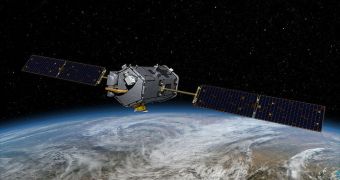Officials at NASA announced that they have selected the Delta II rockets build by Englewood, Colorado-based United Launch Services, LLC (ULS) to deliver three critically-important, upcoming missions to Earth's orbit.
Scientists at the American space agency believe that these delivery systems provide the best possible deal, both in terms of performances and costs. All launches are scheduled to take place from Space Launch Complex 2 (SLC-2), at the Vandenberg Air Force Base (VAFB), in California.
The three missions NASA will use Delta II rockets for are the Soil Moisture Active Passive (SMAP) satellite, the Orbiting Carbon Observatory-2 (OCO-2) spacecraft and Joint Polar Satellite System-1 (JPSS-1) satellite.
They are scheduled to launch in October 2014, July 2014 and November 2016, respectively. According to the American space agency, the total value of the contract is around $412 million.
A NASA press release indicates that these costs also include payload processing, launch vehicle integration, mission-unique launch site ground support and tracking, data and telemetry services, among other launch-related services.
Managed by the NASA Jet Propulsion Laboratory (JPL), in Pasadena, California, SMAP will conduct a series of global measurements covering soil moisture and its freeze-thaw states. This will enable experts to better understand how the water, energy and carbon cycles interact.
OCO-2 is the successor of the first, ill-fated OCO, which was lost during launch. Its purpose will be to study the planet's carbon cycle in great detail. The data it will produce will be included in a series of computer models meant to predict long-term climate change.
Last, but not least, the JPSS-1 will succeed the Suomi National Polar Partnership (NPP). Launched in 2011, the latter represents a state-of-the-art Earth observatory, and a collaboration between NASA and the National Oceanic and Atmospheric Administration.
“The JPSS Program is the former National Polar-orbiting Operational Environmental Satellite System Program. The JPSS system includes the satellite's sensors and ground system supporting civil weather, climate measurements and data sharing with other U.S. agencies and international partners,” NASA reports.

 14 DAY TRIAL //
14 DAY TRIAL //